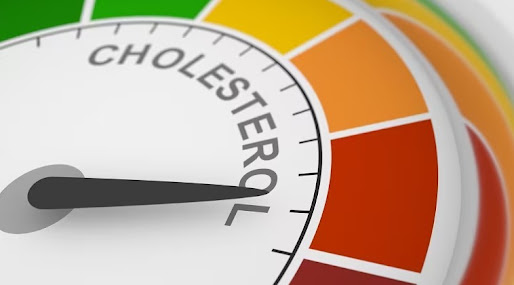Self Care - Having high cholesterol levels can increase the risk of heart disease and other health problems. One effective way to manage cholesterol is through a healthy diet. In this article, we will explore various diets that can help lower cholesterol levels naturally.
1. Mediterranean Diet
The Mediterranean diet is known for its heart-healthy benefits. It emphasizes the consumption of fruits, vegetables, whole grains, legumes, and healthy fats like olive oil.
This diet encourages moderate intake of lean proteins such as fish and poultry, while limiting red meat consumption. Studies have shown that the Mediterranean diet can reduce LDL cholesterol levels and promote overall heart health.
2. DASH Diet
The DASH (Dietary Approaches to Stop Hypertension) diet is not only effective for managing blood pressure but also for lowering cholesterol levels.
This diet focuses on consuming fruits, vegetables, low-fat dairy products, whole grains, and lean proteins. By reducing sodium and saturated fat intake, the DASH diet can help improve cholesterol profiles.
3. Plant Sterols and Stanols
Plant sterols and stanols are compounds found in certain plant foods that have been shown to lower LDL cholesterol levels. They work by blocking the absorption of cholesterol in the intestines.
Foods fortified with plant sterols and stanols, such as margarine and orange juice, can be incorporated into a balanced diet to help lower cholesterol.
4. High-Fiber Foods
Foods high in soluble fiber, such as oats, barley, beans, lentils, and fruits like apples and citrus fruits, can help reduce LDL cholesterol levels. Soluble fiber binds to cholesterol in the digestive system, preventing its absorption into the bloodstream.
Including these high-fiber foods in the diet can have a positive impact on cholesterol levels.
5. Omega-3 Fatty Acids
Omega-3 fatty acids, found in fatty fish like salmon, mackerel, and sardines, are known to have numerous health benefits. They can help lower triglyceride levels and reduce inflammation in the body.
Including fatty fish or taking omega-3 supplements can contribute to better cholesterol management.
6. Nuts and Seeds
Nuts and seeds, such as almonds, walnuts, flaxseeds, and chia seeds, are rich in heart-healthy fats, fiber, and other beneficial nutrients. They can help lower LDL cholesterol levels when consumed as part of a balanced diet.
However, it's important to consume them in moderation due to their high calorie content.
7. Green Tea
Green tea contains antioxidants called catechins that have been associated with improved heart health. Drinking green tea regularly may help lower LDL cholesterol levels and reduce the risk of heart disease.
It can be enjoyed hot or cold as a refreshing and cholesterol-friendly beverage.
8. Avoid Trans Fats
Trans fats are artificial fats found in many processed and fried foods. They not only raise LDL cholesterol levels but also decrease the levels of HDL (good) cholesterol. To lower cholesterol, it is crucial to avoid or minimize the consumption of foods that contain trans fats.
Read food labels carefully and opt for healthier alternatives that are free from trans fats.
9. Exercise Regularly
In addition to a healthy diet, regular exercise plays a vital role in managing cholesterol levels. Engaging in physical activity can help raise HDL cholesterol (the good cholesterol) and lower LDL cholesterol (the bad cholesterol).
Aim for at least 30 minutes of moderate-intensity exercise, such as brisk walking or cycling, most days of the week.
10. Limit Alcohol Consumption
While moderate alcohol consumption can have some health benefits, excessive alcohol intake can lead to high cholesterol levels. It's important to drink alcohol in moderation or, if possible, avoid it altogether.
If you choose to drink, limit your intake to one drink per day for women and up to two drinks per day for men.
Conclusion
In conclusion, adopting a healthy diet is key to lowering cholesterol levels naturally. Diets like the Mediterranean diet and DASH diet, which focus on whole foods and healthy fats, have been proven effective.
Incorporating plant sterols and stanols, high-fiber foods, omega-3 fatty acids, nuts and seeds, and green tea can also contribute to better cholesterol management.
It's important to avoid trans fats, exercise regularly, and limit alcohol consumption for optimal heart health.
Frequently Asked Questions (FAQs)
1. How long does it take to lower cholesterol through diet?
The time it takes to lower cholesterol through diet can vary depending on various factors, including the individual's starting cholesterol levels and adherence to a healthy diet. Generally, significant improvements in cholesterol levels can be seen within a few weeks to a few months of following a cholesterol-lowering diet.
2. Can I still enjoy meat while following a cholesterol-lowering diet?
While it's advisable to limit red meat consumption, lean meats can still be enjoyed in moderation as part of a balanced diet. Opt for lean cuts of poultry and fish, which are lower in saturated fat. It's important to focus on overall dietary patterns rather than singling out specific foods.
3. Are there any side effects to consuming plant sterols and stanols?
Consuming plant sterols and stanols from fortified foods or supplements is generally considered safe and well-tolerated. However, in rare cases, excessive consumption may cause digestive issues such as diarrhea. It's always best to follow the recommended dosage and consult with a healthcare professional if you have any concerns.
4. Can exercise alone lower cholesterol levels?
While exercise can have a positive impact on cholesterol levels, it's most effective when combined with a healthy diet. Regular physical activity helps raise HDL cholesterol and can contribute to overall heart health. However, for significant improvements in cholesterol levels, it's important to focus on both diet and exercise.
5. Can genetics influence cholesterol levels?
Yes, genetics can play a role in determining cholesterol levels. Some individuals may have a genetic predisposition to high cholesterol levels, even with a healthy lifestyle. If you have a family history of high cholesterol or related health conditions, it's important to work closely with a healthcare professional to develop a personalized approach to cholesterol management.
